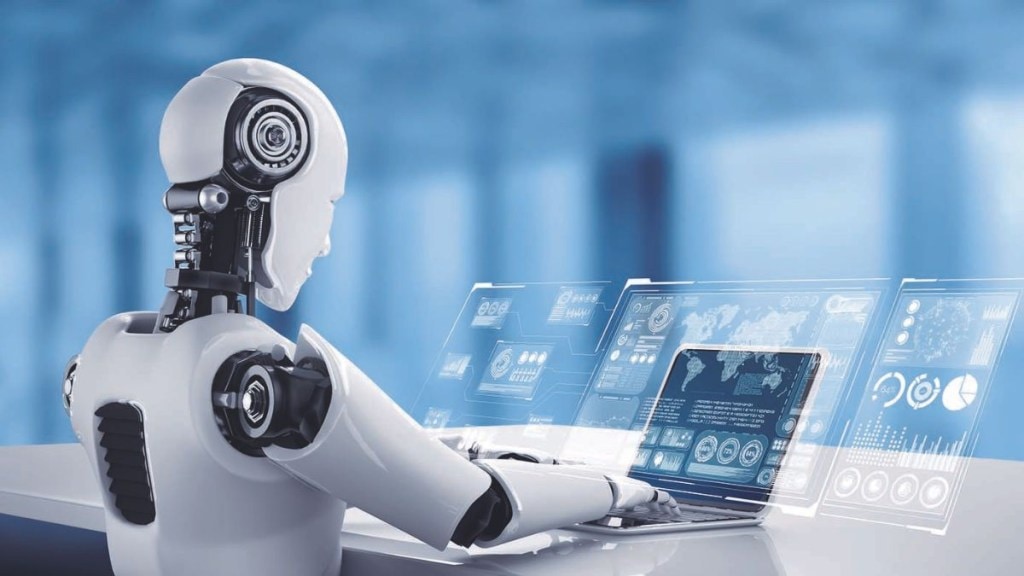A recent Harvard Business Review study found that 44% of all working hours across industries have the potential to be impacted by generative AI (GenAI). The biggest opportunity is in banking, where 72% of working hours can potentially be transformed by generative AI. In insurance and capital markets, it is 68% and 67%. For retail, travel, health and energy sectors, the number of working hours that GenAI could potentially transform is 40%-50%.
“The very fabric of work will be redefined by GenAI,” says Deepa Param Singhal, vice president, Cloud Applications, Oracle India, pointing out that GenAI is driving a technological revolution akin to the revolution of the internet or mobile communications. “The year 2024 marks a vital and decisive year when GenAI will showcase how it can transform knowledge work, business processes, supply chains and much more. The adoption of GenAI will reshape industries, amplifying human capabilities and creativity,” she adds.
India will be a key contributor to the global AI landscape. Prabhu Ram, head – Industry Intelligence Group (IIG), CyberMedia Research, says its ongoing research on AI adoption points to 55% of Indian firms effectively implementing AI at scale. In particular, the early GenAI initiatives are empowering Indian firms to create customer-centric products (60%), enabling data-driven decision-making (59%), and enhancing customer services (47%). He is optimistic about a substantial scale-up in AI adoption, a shift from the exploratory initiatives of 2023 to a real-world impact in 2024 and beyond.
Beyond the go/no-go stage
An IDC study in late December showed that enterprises will invest more than $19.4 billion worldwide on GenAI solutions in 2023. This spending, which includes GenAI software as well as related infrastructure hardware and IT/business services, is expected to more than double in 2024 and reach $151.1 billion in 2027 with a compounded annual growth rate (CAGR) of 86.1% over the 2023-2027 forecast period. By the end of the forecast period, GenAI spending will account for 29% of overall AI spending, up significantly from 10.8% in 2023.
According to Singhal, Indianorganisations in telecommunications, manufacturing, retail, e-commerce, public services, healthcare and other sectors will be able to navigate complex challenges in enterprise resource planning, supply chain management, human capital management, advertising, or customer experience or infrastructure with GenAI. In supply chain management, GenAI can exhibit predictive and intuitive functionality by optimising routes or predicting real-time demand, or by pioneering eco-friendly packaging solutions.
The financial domain can witness the strategic impact of GenAI by generating precise forecasts, tailoring personalised investment reports, or crafting market-ready proposals. Human resources, too, can experience a paradigm shift with GenAI by enabling the creation of personalised training modules or designing targeted recruitment plans, or producing talent profiles for optimal matches, she pointed out.
On the growth prospects in healthcare, Rajesh Sinha, founder and chairman, Fulcrum Digital, said, “GenAI can suggest personalised medical plans, predictive analysis of diseases, and read medical transcripts. It can contribute towards advanced medical research and drug discovery.”
Similarly, in education, with help of GenAI student retention strategies can be built. Tedious tasks like data entry, verification, student record accuracy can be automated. In foodtech, GenAI can predict food wastage, personalised menu builder & food recommendation, demand forecasting, supply chain optimisation, energy management to reduce carbon footprint, he added.
Advantage tech
According to Prabhu, the rise of GenAI is propelled by advancements in compute, enhanced availability of big data, and a growing talent pool of highly-skilled technical professionals capable of both enabling and harnessing Gen AI’s potential. “The early technology adopters in India are leveraging the cloud not merely for operational efficiencies but rather as a catalyst for steering strategic growth and innovation. The cloud’s inherent flexibility and scalability serve as the foundational backbone for Gen AI,” he said.
Sharryn Napier, VP, APAC, GitHub, talks about her company’s 2023 ‘State of the Octoverse’ report that highlights that the country’s developers are the second biggest contributor to GenAI projects on GitHub globally. “We only have to look at AI adoption in India through the lens of software development to see the impact it’s having,” she said.
India’s enterprises and developers have been quick to embrace GitHub Copilot, the world’s first at-scale AI developer tool. “Infosys, for example, is deploying GitHub Copilot and GitHub Copilot Chat at scale, allowing its developers to execute some of the most complex tasks with simple prompts,” she revealed.
Looking at GenAI more broadly, if 2023 was marked by experimentation, then 2024 will be the year of intentional rollout and implementation, Napier said. “Businesses in India will harness the power of GenAI for focused problem-solving, tailoring the technology to industry-specific needs to address particular, controllable challenges.”
However, GenAI does face some challenges, including concerns related to AI bias, perceived inability to explain results, intellectual property rights, inherited risks from training datasets, and AI hallucinations, amongst others. “For organisations, these critical challenges need to be addressed, while deploying GenAI models,” Prabhu added.








